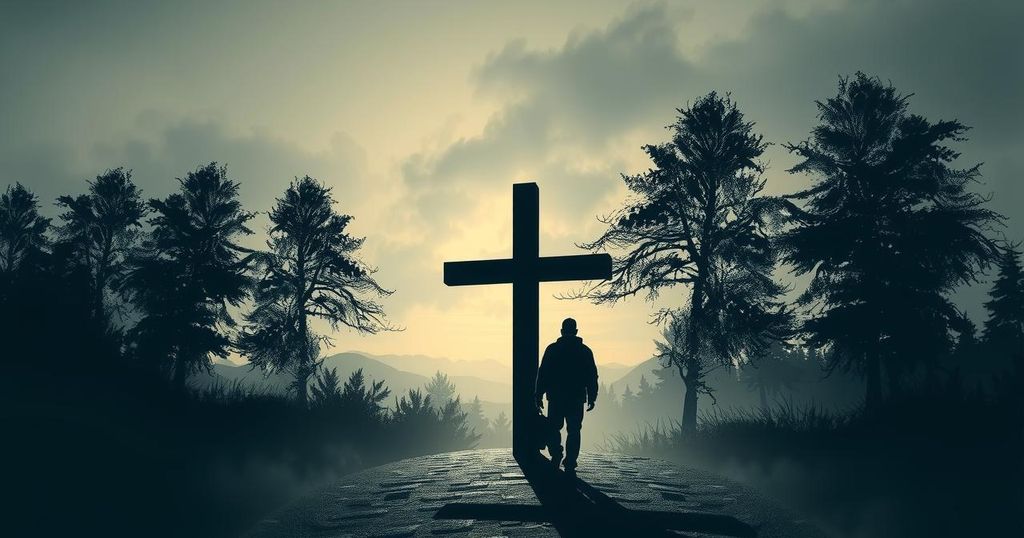Civilians in Eastern Congo Struggle Amid Escalating M23 Rebellion
Civilians in eastern Congo are facing dire choices amid the M23 rebellion. With distrust towards both their national military and foreign forces in Rwanda, many opt to flee. The capture of Goma has exacerbated humanitarian crises and prompted significant displacement, highlighting the urgent need for effective international intervention and dialogue to stabilize the region and protect vulnerable communities.
As the conflict intensifies in eastern Congo, civilians face harrowing choices amid the M23 rebellion. Many are caught between either fleeing into the unstable interior of Congo or seeking refuge in Rwanda, where suspicions linger regarding foreign intervention. The situation escalated notably with the capture of Goma by M23 rebels, prompting evacuations and raising concerns about the efficacy of Congo’s military support amidst a collapsing regional peace.
Imani Zawadi’s sentiments encapsulate the plight of many displaced individuals, expressing distrust for both the foreign forces and the Congolese army. With over 1,200 people having already sought refuge in Rwanda since the flare-up, fears abound that M23 rebels aim to establish a new administration in Goma, exploiting the region’s vast mineral resources. Rwandan leaders claim that their intervention is aimed at protecting ethnic Tutsis in Congo, amidst persistent accusations of their backing for M23.
The M23 rebellion unfolds against the backdrop of a complicated historical and political context involving a decade-long struggle. Rwanda maintains its stance of denial concerning any support for the M23, even as U.N. reports suggest Rwandan troops are actively involved, with estimates of up to 4,000 forces present. This increasingly chaotic scenario undermines previous ceasefire efforts, resulting in apprehensions regarding a potential reconfiguration of power in the region, which holds immense untapped mineral wealth.
President Kagame’s assertions emphasize the persistent historical grievances of Rwanda towards perceived threats from armed elements in eastern Congo. In light of rising unrest, civilian sentiments reveal a reluctance towards Rwandan influence, even as calls to negotiate with M23 gain momentum in the Congolese government. Many residents display a fierce commitment to their territory, resisting the designation of Goma as a new rebel enclave despite the glaring challenges they face.
Humanitarian concerns escalate as conflicts displace hundreds of thousands, leaving many without viable options for safety. Goma, a critical hub for humanitarian assistance, is now embroiled in uncertainty, compounded by its recent capture. As the international community calls for a ceasefire, civilians like Anzimana Semena articulate their fear of being held hostage by the warring factions, indicating a desperate need for a resolution that safeguards their lives and humanitarian access in the region.
The situation in eastern Congo is marked by a resurgence of violence as M23 rebels gain control over key territories, notably Goma. The conflict, steeped in a history of ethnic tensions and regional instability, reflects the challenges faced by local populations caught in the crossfire between disparate armed factions. Civilian trust in both domestic and foreign military forces is severely undermined by corruption and historical grievances, complicating the paths to security and support in an already volatile region.
The ongoing conflict in eastern Congo presents a complex crisis for civilians who continuously navigate debilitating choices for safety. The resurgence of the M23 rebellion and the implications of potential Rwandan support underscore the fragility of regional stability. Urgent humanitarian assistance is needed to address the mass displacement and insecurity while stakeholders must strive towards genuine dialogue and sustainable resolutions to restore peace and protect vulnerable populations.
Original Source: apnews.com




Post Comment